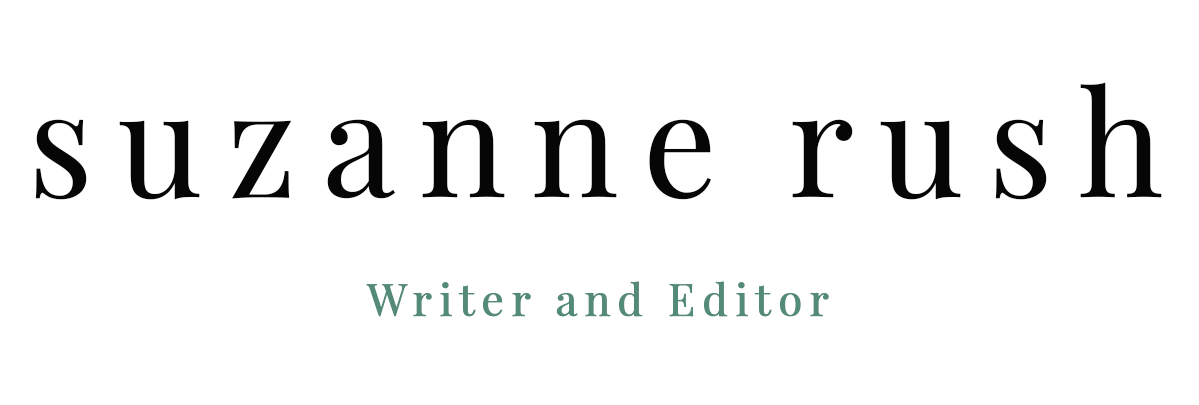The Stargazers is an interview series with practicing astrologers. If you know nothing about this ancient art or the people who practice it today, this is the place to find out what you’ve been missing. If you’re already an enthusiast, you just might discover something about your favorite astrologer that you didn’t know. Why do I care? Because.
NADIA GILCHRIST
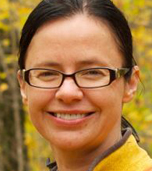 NADIA GILCHRIST is a Canadian astrologer and tarot reader who has been practicing professionally for 19 years. Her work is focused on practical solutions because, as she says, “I believe that past lives, karma and spirituality are valid and powerful, but not much use if you can’t make sense of them in the context of your daily life.” Read her well-written and exceptionally useful weekly horoscopes and astrological essays — and find out about her consultation services, too — at her website Ruby Slipper Astrology.
NADIA GILCHRIST is a Canadian astrologer and tarot reader who has been practicing professionally for 19 years. Her work is focused on practical solutions because, as she says, “I believe that past lives, karma and spirituality are valid and powerful, but not much use if you can’t make sense of them in the context of your daily life.” Read her well-written and exceptionally useful weekly horoscopes and astrological essays — and find out about her consultation services, too — at her website Ruby Slipper Astrology.
What got you interested in astrology to begin with and how old were you at that time?
I think I was in my early thirties. I was having some difficulties in my personal life, and was trying to understand events that felt like they were beyond my control. So you could say I was initially drawn to astrology as an attempt to impose order on chaos, although now I see that “chaos” is really in the eye of the beholder.
What is your specialty (mundane, natal, financial) and why?
I’m interested in the impact transits and progressions have on personal lives.
What do you think is the role of astrology in the modern world?
The same role it’s always played: it gives people a context to put fear and change into, while allowing them to understand their reactions to fear and change.
What is your personal ethos regarding giving readings? For instance, do you believe you have a responsibility of some kind to instill hope in a client who may be coming for answers to difficult life crises?
I want to empower my clients by presenting them with the facts, and then encouraging them to make their own decisions. I try to balance hope with reality, and a large part of reality is accepting what’s happening in real life. Astrology is an adjunct to real life. It’s my job to tell the truth about what I see in the charts, but at the same time, I try to give my clients some tools to work with (based on their natal potential, and how that interfaces with real life). Not every situation is going to work out the way a client wants it to, but I do not believe that anyone is “doomed” to be unhappy.
Are you able to make your living primarily from astrology? If so, how long did it take to get to the point where astrology provided an acceptable wage?
I first launched my business in 2010 (although I’ve been practicing for 19+ years). I would say the wage I make now far exceeds my expectations.
Has knowing what’s on the horizon for you astrologically ever functioned as an impediment to your spontaneity — for instance, knowing a potential partner’s chart?
Nope, never. My heart and instincts always dominate. I look at the charts after the fact, and so far they’ve always supported what’s happened.
What do you say to people who say they don’t believe in astrology?
Nothing! Everyone is entitled to his or her opinion, and I’m not here to prove astrology’s merits to the skeptics. Those that do believe in astrology end up crossing my path, and that’s good enough for me.
What sign are you?
Virgo.
APRIL ELLIOTT KENT
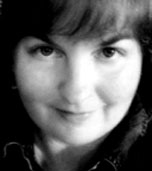 APRIL ELLIOTT KENT has been a professional astrologer since 1990, specializing in the astrology of weddings and personal eclipse cycles. Kent is the author of three books, The Essential Guide to Practical Astrology, Star Guide to Weddings and the upcoming Astrological Transits (available in June 2015). Her astrological reflections have also appeared in The Mountain Astrologer, Dell Horoscope magazine and Llewellyn’s annual Moon Sign and Sun Sign books, as well as MoonCircles.com, Beliefnet.com and AOL Horoscopes. Her consistently thoughtful insights into astrology plus information about purchasing her new book and other services can be found at her site: BigSkyAstrology.com
APRIL ELLIOTT KENT has been a professional astrologer since 1990, specializing in the astrology of weddings and personal eclipse cycles. Kent is the author of three books, The Essential Guide to Practical Astrology, Star Guide to Weddings and the upcoming Astrological Transits (available in June 2015). Her astrological reflections have also appeared in The Mountain Astrologer, Dell Horoscope magazine and Llewellyn’s annual Moon Sign and Sun Sign books, as well as MoonCircles.com, Beliefnet.com and AOL Horoscopes. Her consistently thoughtful insights into astrology plus information about purchasing her new book and other services can be found at her site: BigSkyAstrology.com
What got you interested in astrology to begin with and how old were you at that time?
I was 12 years old when a copy of Linda Goodman’s “Sun Signs” beckoned to me from my stepbrother’s coffee table. I had always been interested in what makes people tick, and I immediately recognized that astrology could be a great tool for that. Impoverished and growing up in the pre-internet age, I spent years loitering in the aisles of my local bookstore, reading any astrology books I could get my hands on! It wasn’t until I was 28 years old, just before my first Saturn return, that I began studying with a teacher.
What is your specialty (mundane, natal, financial) and why?
I used to specialize in electional astrology (choosing good dates and times for taking action), particularly for weddings. I stumbled into electional work completely by accident, and it suited me perfectly while I was in school because I found it less emotionally demanding than other astrology work. Last year, after 14 years, I decided to take a hiatus from it. At this point, I’m between specialties, although I do love talking with people about their careers.
What do you think is the role of astrology in the modern world?
The modern world is a complex place. Astrology can’t offer the same thing to impoverished rural people of Guinea that it does to American suburbanites who want to become more self-actualized. Astrology can perform many roles, as your question about specialties implies. It can help you figure out what to do and when to do it, understand your own nature and those of others, plan your farming, anticipate global conflict, and even predict the weather.
But astrology’s greatest contribution is that it helps us understand the quality of time. If you understand the quality of a moment in time, you gain insight into the people who were born at that moment, the events that are initiated, and the promise and challenge that the moment holds. Then, it’s a question of applying that understanding to the specific needs of an individual, a family, a corporation, a country.
What is your personal ethos regarding giving readings? For instance, do you believe you have a responsibility of some kind to instill hope in a client who may be coming for answers to difficult life crises?
When you’re learning to do readings for people, there is a dilemma: Do you tell people the truth, or tell them what they want to hear? With a strong Saturn, I used to come down a little hard on the former. These days, I hope that I present reality in a way that allows for hope, choice, and possibilities. I find people appreciate hearing the truth, even when it’s unpleasant, but it’s important not to leave them there on their knees. You have to help them to their feet and get them walking again, toward the best possible future.
Are you able to make your living primarily from astrology? If so, how long did it take to get to the point where astrology provided an acceptable wage?
Astrology is my full-time job. It was a great day when my astrology income exceeded the federal poverty guidelines. Technically, my husband and I could eke out a living on what I earn, but there would be a lot of Top Ramen involved. As it is, he has a conventional job that pays a much more acceptable wage, so we enjoy a more varied diet and get to travel a little.
It took many years to reach this point. I began practicing in 1991, had a setback when I moved to a new city (again, pre-internet it was harder to move a practice), took some time off in the early 00’s to finish college, and spent five or six years supplementing my income with website design and freelance PR writing. I’d say it’s probably in the past seven years or so that I’ve gone from being humiliated by my astrology earnings to merely disappointed.
Has knowing what’s on the horizon for you astrologically ever functioned as an impediment to your spontaneity — for instance, knowing a potential partner’s chart?
Here’s my favorite story about that. I met my husband when he came to me for an astrology reading. We became great friends, then eventually fell in love and decided to get married. Like a good astrologer, I asked my teacher to choose a date for the wedding. As he overheard me giving his data to her, he stopped me: “That’s not the right time zone.” Turns out I’d been calculating his chart wrong all along! When I calculated it using the right time zone, our charts clicked together in an amazing way. Had I not made that mistake when I met him, and given all the other marriage indicators that were stacking up in my transits and progressions, I might have recognized him as my partner much sooner. But it’s probably best I didn’t, because the beauty of our relationship was how gradually we came to know and love one another, without any other expectations.
I don’t use astrology much for myself these days. Oh, I do adjust the timing of things on occasion, as a ritual to invite a better outcome. And when I’m unsure about what course of action to take, I refer to my chart for insights. But in the end, I see astrology as a friend. When I’m drifting off course, an hour spent with my chart will usually pull me back to onto my path.
What do you say to people who say they don’t believe in astrology?
They never say that to me anymore. That’s mostly because I work all the time and most of my socializing is done with close friends. On the rare occasion I find myself in other social settings, I’m extremely cautious about disclosing my profession. For years, I found that the minute I told someone I’m an astrologer, they either dismissed me as an idiot or hounded me for insights into their Scorpio boyfriends. These discussions did nothing to further astrology’s image or mine (I did my best to redeem Scorpio whenever I could), and led me to drink too much at parties. So these days, I size up my audience, then often hedge and say I’m a writer, which is perfectly true.
(What I used to say was that I don’t believe in astrology either – I see it not as a belief system, but as a language for describing life.)
What sign are you?
All of them! But when I was born, the Sun was in Leo. 🙂
STEVEN ROBINS
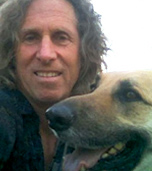 STEVEN ROBINS has been an astrologer for over 25 years. Based in Santa Cruz, CA, Robins’ practice is grounded in his observation of nature’s cycles — from the simple turning of the tides and seasons to the evolution of the epochs — and his interest in how these cycles affect our lives. Contact him at cosmiccircumstances.
STEVEN ROBINS has been an astrologer for over 25 years. Based in Santa Cruz, CA, Robins’ practice is grounded in his observation of nature’s cycles — from the simple turning of the tides and seasons to the evolution of the epochs — and his interest in how these cycles affect our lives. Contact him at cosmiccircumstances.
What got you interested in astrology to begin with and how old were you at that time?
In 1974, when I was graduating the University of California at Santa Cruz, working on a senior thesis about the interrelationship of natural and social systems, a guy I met made a comment about that night’s full moon, which resonated with me. He said we take for granted how the alignment of the sun and moon affects the sea tides, and that the rest of the solar system creates energy tides on other levels. Made sense. I was 21. A couple years later I bought Jim Maynard’s “Celestial Influences” calendar, where the introductory material described astrology as musically counterbalancing planets moving through our natural seasonal cycle. Have followed it ever since.
What is your specialty (mundane, natal, financial) and why?
I am most interested in how the alignment of the solar system is creating tides of energy influence in our world, and how these developments are playing out in global developments and for individuals and their relationships. Whatever our unique inclinations and differences, the trends we are all living with are what most matters to me.
What do you think is the role of astrology in the modern world?
To explain how patterns of planetary alignment are creating natural influences in our lives, and to help people find comfort and support through understanding and acceptance.
What is your personal ethos regarding giving readings? For instance, do you believe you have a responsibility of some kind to instill hope in a client who may be coming for answers to difficult life crises?
While I only explore the unfolding energy tides and what influence they might bring, without giving specific advice or predicting outcomes, what is gained through understanding the unique ways this is affecting people, encouraging them to go along with the flow of nature for peace and success, with increased clarity, is inherently hopeful and helpful. That’s enough for me.
Are you able to make your living primarily from astrology? If so, how long did it take to get to the point where astrology provided an acceptable wage?
I do astrology for part of my income. It has taken many years of experience to feel comfortable giving personal readings, perhaps leading to more.
Has knowing what’s on the horizon for you astrologically ever functioned as an impediment to your spontaneity — for instance, knowing a potential partner’s chart?
If anything, having some knowledge of shifting energy tides and personal inclinations has sharpened my appreciation of the need to always be fresh and spontaneous, trusting the flow of nature. I once discovered a correction in someone’s chart and realized I had been “seeing” them incorrectly, and it reminded me to always respond to things as they are, whether we think we understand them or not.
What do you say to people who say they don’t believe in astrology?
It’s like saying you don’t believe in gravity. Reality doesn’t require proof to be true, though you might need proof to even think about it. In contemporary culture, astrology is popularly understood to mean predicting and prescribing according to the alignment of the planets (“stars,” as they call it), but in its essence astrology is merely the observation of how the unfolding patterns of planetary alignment seem to have consequence for life on earth. If science means drawing conclusions about nature based on systematic observation, then astrology is the first science (Genesis 1:14). It is reasonable that people without understanding of how it works (which I am glad to explain, without folklore or mythology), would fail to see how it could. In my view, it is not necessary, just interesting and helpful, to follow astrology.
What sign are you?
I am Libra Sun, Pisces Moon, Aquarius rising. September 1952, heading into the conjunction of Saturn and Neptune in Libra — reinforced dreams of love and harmony.
JIM SHER
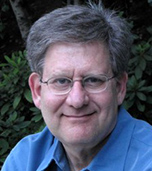 JIM SHER is the founder of the Sher Institute of Astrology and Metaphysics in Los Angeles, CA. He became interested in astrology while studying for his Masters degree in Social Work, and later began to incorporate astrology into his therapy practice, bridging the gap between traditional therapy and transpersonal and depth psychology. Currently he teaches astrology, meditation and philosophy through his institute and also continues to work with individuals as an astrological counselor. Find out more about Sher, his services and Sher Institute courses at sherastrology.com
JIM SHER is the founder of the Sher Institute of Astrology and Metaphysics in Los Angeles, CA. He became interested in astrology while studying for his Masters degree in Social Work, and later began to incorporate astrology into his therapy practice, bridging the gap between traditional therapy and transpersonal and depth psychology. Currently he teaches astrology, meditation and philosophy through his institute and also continues to work with individuals as an astrological counselor. Find out more about Sher, his services and Sher Institute courses at sherastrology.com
What got you interested in astrology to begin with and how old were you at that time?
When I was getting my Masters degree I met someone who wanted to do my chart and I agreed. I was very casual about it, but the feeling of it did have an air of familiarity. A year later, on a visit with a friend from college, another person gave me a chart to look at and this time, I kept it and looked at off and on for the next few years. That was weird to me, but I couldn’t let it go.
Things got serious when I was 26 and got a full reading from an astrologer and this time, I was very moved. I felt I knew astrology already and wondered two things: I wondered why I was so certain that astrology was real and then I truly was bewildered as to why everyone didn’t make astrology real. The combination of these two thoughts caused me to feel very weird and different. But it didn’t cause me to doubt what I now had begun to recognize as true and real. From then on I took astrology very seriously and it became a very significant part of my life.
What is your specialty (mundane, natal, financial) and why?
I was trained as a therapist and began using astrology with clients early on in my practice. So, at first I combined astrology and psychology as a therapist. I have studied financial and mundane astrology but it did not fascinate me the way astrology combined with psychological counseling did.
Also, I have come to see that astrology is an incredible tool for increasing self-awareness. This, in turn, has the potential to cause a person to want to begin a spiritual path. In fact, I have seen that astrology itself can be a spiritual path, if approached in the right way. I know that it is rare to regard astrology as having this kind of purpose. But for me it is, as it connects us to Cosmos itself and that changes our consciousness drastically.
What do you think is the role of astrology in the modern world?
I do not expect astrology to become mainstream in my lifetime or perhaps in the next 30 years or more. There are two major reasons:
- The biggest religio/philosophical battle right now is between science and the fundamentalists of religion. Astrology is ridiculed or worse by both sides. 400-500 years ago astrology was often practiced, even by great scientists such as Kepler and others. But, right now, astrology is regarded either as mere superstition or as the so-called working of the ‘devil.’ Either way, astrology is not likely to gain any traction in the foreseeable future.
- The way astrology is being practiced. This might seem like an odd thing for an astrologer to say, but I am not the only one. In a talk by Richard Tarnas to an astrology conference, he openly stated that the way astrology is often practiced trivializes astrology. He even went further to say that the best minds of our present culture do not go into the field of astrology. I doubt most astrologers appreciated his viewpoint, but I did. I believe as he does that astrologers need to become masters of astrology AND in at least one other field. I do not assume that astrology is a ‘stand alone’ field. Again, most astrologers did not like to think this way, but as long as astrological practitioners do not have more training, their consultations will reflect that.
I would like to add that one reason I began teaching astrology was to attempt to raise the bar of astrological education.
What is your personal ethos regarding giving readings? For instance, do you believe you have a responsibility of some kind to instill hope in a client who may be coming for answers to difficult life crises?
I do not give readings. Also, the ‘consultations’ I give are not monologues nor do I give advice. I gave a lengthy talk at Antioch University that went into the nature of an ethical consultation. I showed that making predictions or even suggesting that one can make predictions is actually dangerous for the client. This shocked the audience. Though many loved the lecture, I attempted to put astrology on a completely different footing.
So, yes, the astrologer has great responsibility for what they say to a client. But, as to the importance of hope? Now the questioner has dived directly into very important issues facing the astrologer or any counselor. The answer to this question cannot be answered in a brief way. Why? Because first one must explore the nature of hope itself. What is it? Is it a lie? Is it authentic? Can a person truly give hope to another person? What is the purpose or value of hope? Does hope lead to understanding or the seeing of a bigger picture? Why do we rely on hope? What does it truly give us? Can we trust it? Do we ever really trust it? These questions are just the beginning of an important examination of the question.
Finally, the interviewer referred to ‘difficult life crises.’ Yes, people often do consult astrologers at that time. And that is itself an important thing to recognize. Why would a person put such faith in an astrologer about such important matters? What are they doing when they engage in it? Do they really listen to the astrologer or are they merely looking for validation for whatever they’re already thinking? And if the astrologer doesn’t tell then what they want to hear, what do they do with that information? Ignore it? How serious does a client really take the words of the astrologer?
And most importantly. How does the conduct of the astrologer determine how seriously their words are taken by their client?
Are you able to make your living primarily from astrology? If so, how long did it take to get to the point where astrology provided an acceptable wage?
I feel it is very difficult to make a living as an astrologer. To do so in the present climate one would need to have many sources of income, such as from talks, books, articles, as well as consultations. Because I owned a business at one time, I do not need to make my living from astrology. My aim is to break even in the sense that teaching astrology is meant to help me pay regular monthly bills at a minimum level. For more than that I would have to do all of the things I have mentioned. It isn’t impossible, but it is very difficult.
Has knowing what’s on the horizon for you astrologically ever functioned as an impediment to your spontaneity — for instance, knowing a potential partner’s chart?
I do not ever feel I know what is on the horizon. What astrology can reveal are probabilities and possibilities. I do not think that astrology is capable of making concrete predictions. What it can reveal is an archetypal understanding of the forces in play in a person’s life. Humans do have the freedom to make choices. The higher the quality of consciousness of the person, the greater freedoms one has as to make optimum choices, ones that lead to a better future than one has in the moment.
As far as examining the relationship with others, or synastry, people frame the question in terms of compatibility. This is unfortunate. I regard this as the wrong question in the first place. The inference of this view is that whether or not something feels compatible is only based on one’s likes and dislikes rather than on the question of what is the value of the relationship — can it contribute to one’s own growth as well as to the other person’s.
Therefore I do not assume that looking only at the chart of the other person will tell me how the person is manifesting that chart. So, no, it does not limit me or reduce my spontaneity. Astrology does not prevent me from enjoying the mysteries of life and its constant surprises.
What do you say to people who say they don’t believe in astrology?
It depends on who is asking and how serious they are about their question. If they are not really inquiring into it as your question implies, then it not an important matter for them personally. Their opinion is not important, as it is just a mere opinion. So, I tell them I don’t know much about astrology and that ends the silliness quite quickly.
If, on the other hand, it is an important matter to the questioner, then I enjoy going into it with them. I tell them that if one studies astrology, it is probably because they ‘believe’ there is enough to it that they feel it should be explored. Why would anyone study astrology if they didn’t feel it was likely that it had some validity? Belief is perhaps necessary in the beginning.
But when one studies it sufficiently, then it is possible for belief to give way to knowing. I do not believe in astrology anymore. But, even so, it does remain an amazing mystery to me. Its secrets sometimes unlock themselves to me and at other times, I just don’t understand. The approach towards astrology is an important matter. I try to approach it as a sacred, magical study that can be grasped not just mentally, but within one’s own Soul. We are changed by what it reveals to us, when we are given such a gift. We study and put in all kinds of effort and then we humbly wait until more is revealed.
What sign are you?
“I” am not a sign. My chart is composed of a complex interplay between the Sun, Moon, planets, signs, houses, aspects, and much more and even the sum total of all of that, is not “Who I Am?” My answer is not meant to be inflammatory, but that question is enormously misleading. Of course, it is common for people to ask such things, but it is coming from a severe misunderstanding of what a chart is. In other words, with all due respect to the questioner, this question is one of the ways that astrology becomes trivialized.
PETER STOCKINGER
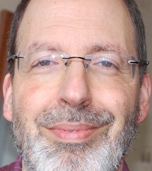 PETER STOCKINGER first trained as a Cosmobiologist in Austria, continued his studies in Great Britain and has been practicing in the field for 25 years. Stockinger is a Master Astrologer with the Society of Astrologers and has published several books including, William Lilly: The Last Magician and an English translation of A German Stargazer’s Book of Astrology (Astronomia Teutsh Astonomei – first published in 1545). He has also written for the Journal of the Astrological Association of Great Britain and The Tradition Journal. His study of English Renaissance astrologers led him to concentrate on the practical aspects of astrology with a focus on the traditional natal, electional and horary disciplines. His website contains a trove of his historical astrological knowledge, as well as information about his consulting services. Find him at: Peter Stockinger’s Traditional Astrology Weblog
PETER STOCKINGER first trained as a Cosmobiologist in Austria, continued his studies in Great Britain and has been practicing in the field for 25 years. Stockinger is a Master Astrologer with the Society of Astrologers and has published several books including, William Lilly: The Last Magician and an English translation of A German Stargazer’s Book of Astrology (Astronomia Teutsh Astonomei – first published in 1545). He has also written for the Journal of the Astrological Association of Great Britain and The Tradition Journal. His study of English Renaissance astrologers led him to concentrate on the practical aspects of astrology with a focus on the traditional natal, electional and horary disciplines. His website contains a trove of his historical astrological knowledge, as well as information about his consulting services. Find him at: Peter Stockinger’s Traditional Astrology Weblog
What got you interested in astrology to begin with and how old were you at that time?
I was in my early twenties when I first became interested in astrology. At that time I was collecting esoteric and occult books, with the intention to eventually open a specialist antique and secondhand bookshop in Austria. Amongst the books I bought were many astrological titles; reading those piqued my interest in astrology.
What is your specialty (mundane, natal, financial) and why?
These days I am mainly concerned with predictive astrology. Horary astrology is probably ranking in first place, followed by predictive natal astrology. I undertake electional work to establish the most auspicious times for any kind of business, surgery, relationship, and so forth. I also keep a regularly updated weblog with mundane astrological articles.
What do you think is the role of astrology in the modern world?
I think that astrology is as valid today as it has been hundreds of years ago. Modern people are still trying to find answers to their three most important questions, health, sex and money, just as our ancestors did. Astrology can still help to find answer to these questions.
What is your personal ethos regarding giving readings? For instance, do you believe you have a responsibility of some kind to instill hope in a client who may be coming for answers to difficult life crises?
What I would like to highlight here is the fact that it is the astrology itself that provides the answers. The astrologer is only the facilitator, who, by interpreting the astrological symbolism, predicts a possible outcome. I would agree though, that it is the astrologer’s responsibility to thoroughly study astrology, enabling them to give the best possible judgment.
Are you able to make your living primarily from astrology? If so, how long did it take to get to the point where astrology provided an acceptable wage?
As this was never my intention, the question is not applicable.
Has knowing what’s on the horizon for you astrologically ever functioned as an impediment to your spontaneity — for instance, knowing a potential partner’s chart?
No, this has never been a problem. We all have free will, which also includes the possibility not to look at the future if we choose to do so.
What do you say to people who say they don’t believe in astrology?
I ask them what their judgment is based upon, and if they have studied astrology so they can express an informed opinion. I also try to point out that sun sign astrology, as found in newspapers, has not much in common with in depth delineations, tailored for the individual and undertaken by a trained professional.
What sign are you?
My Sun is in Leo.
